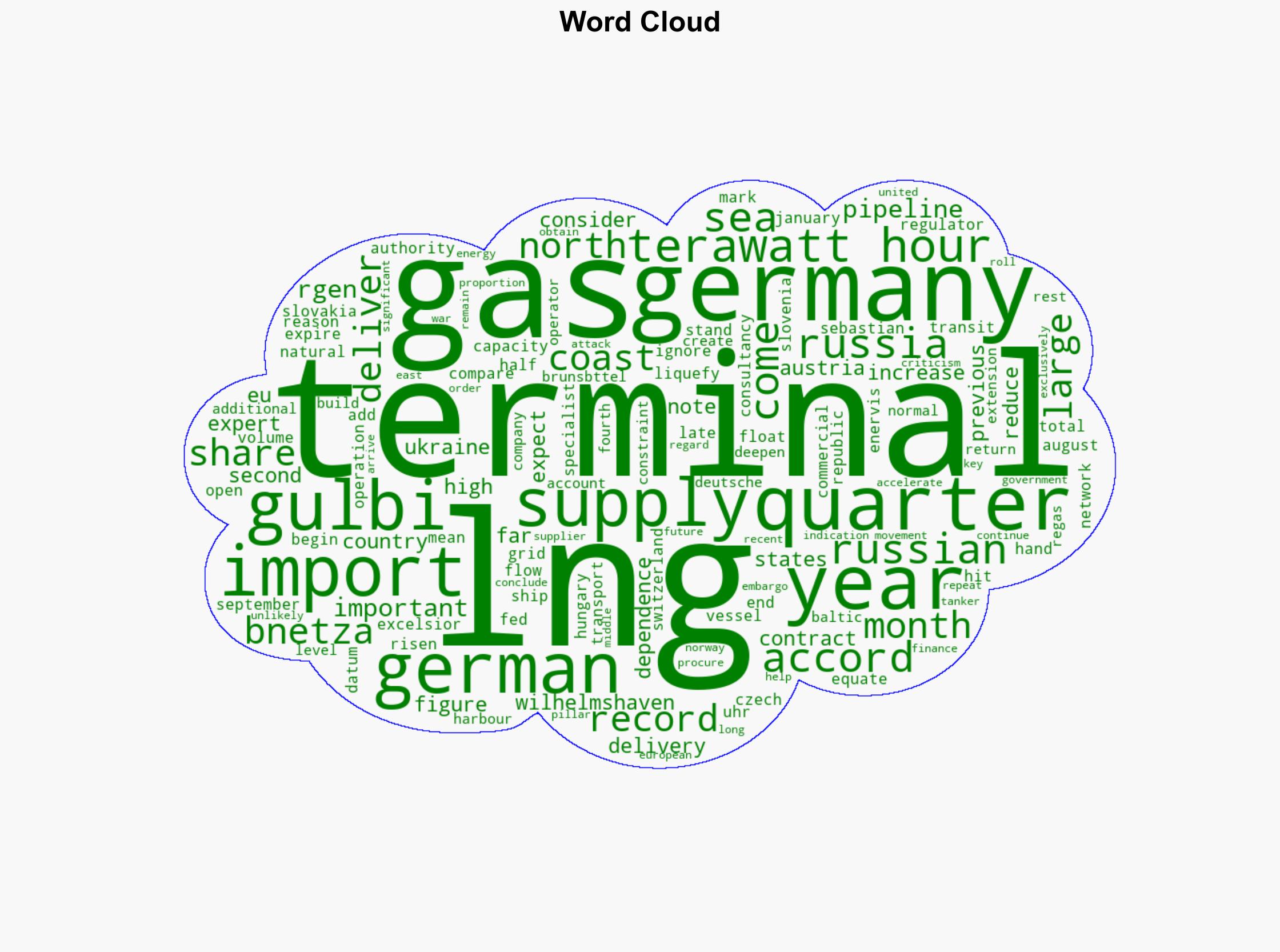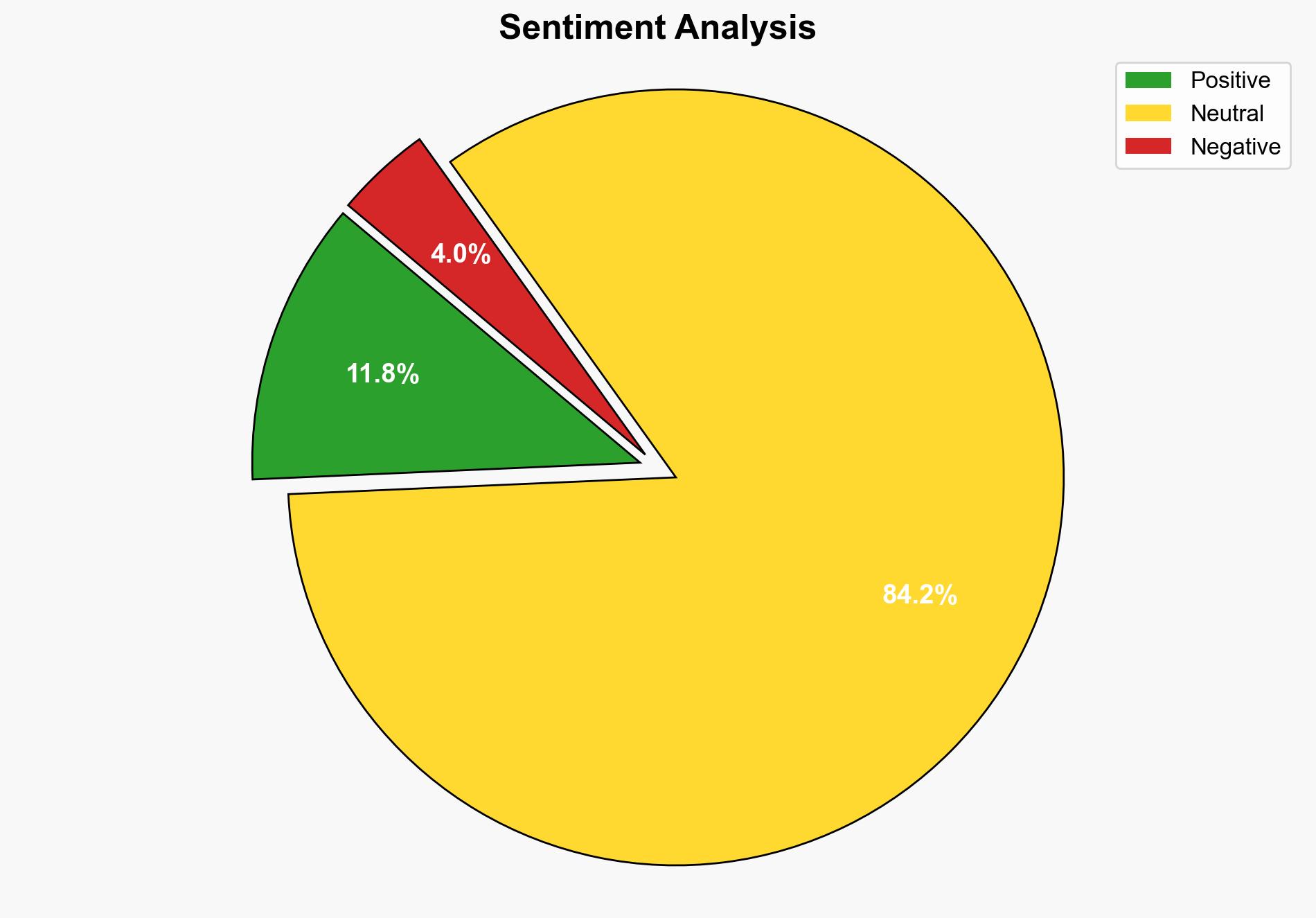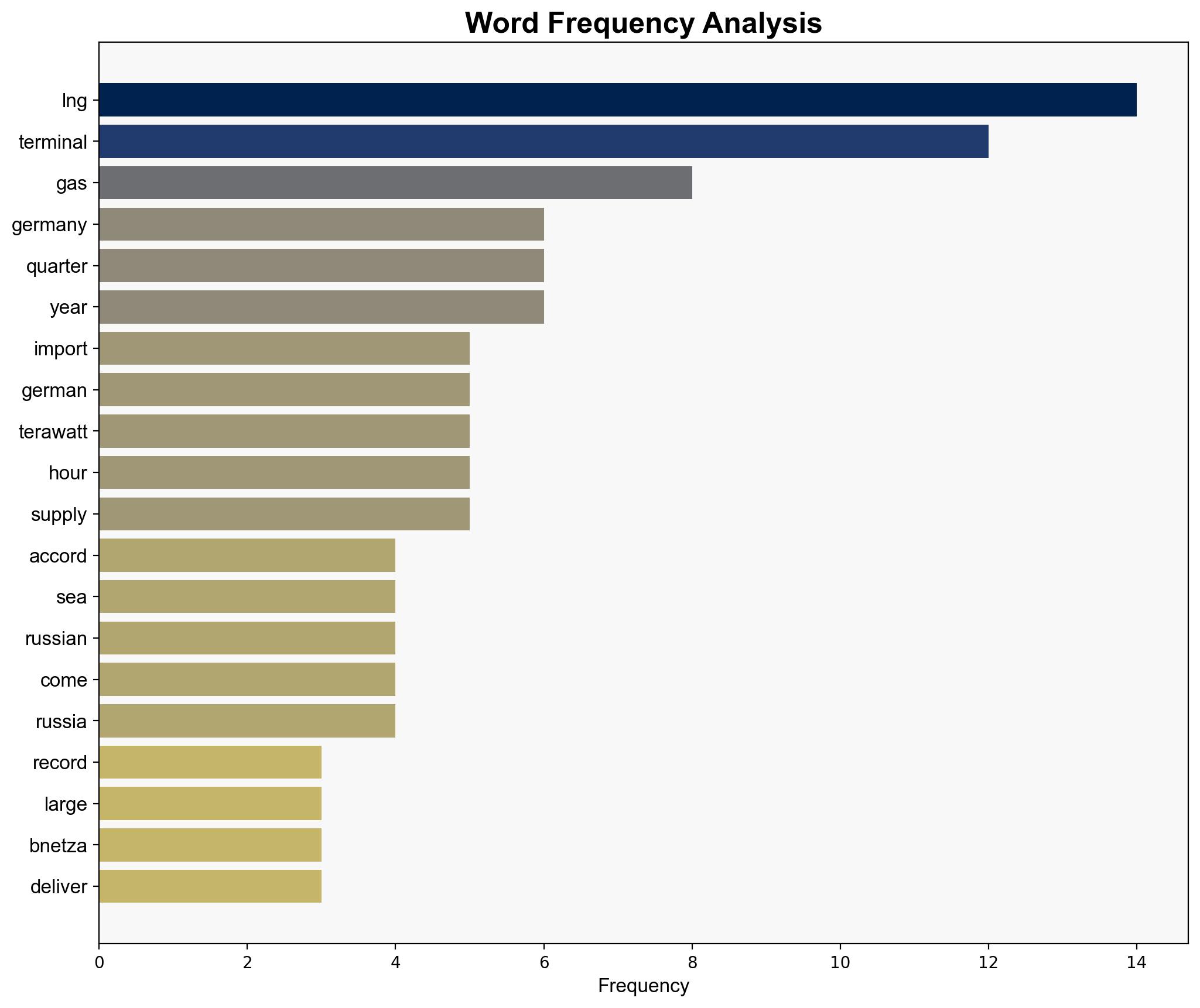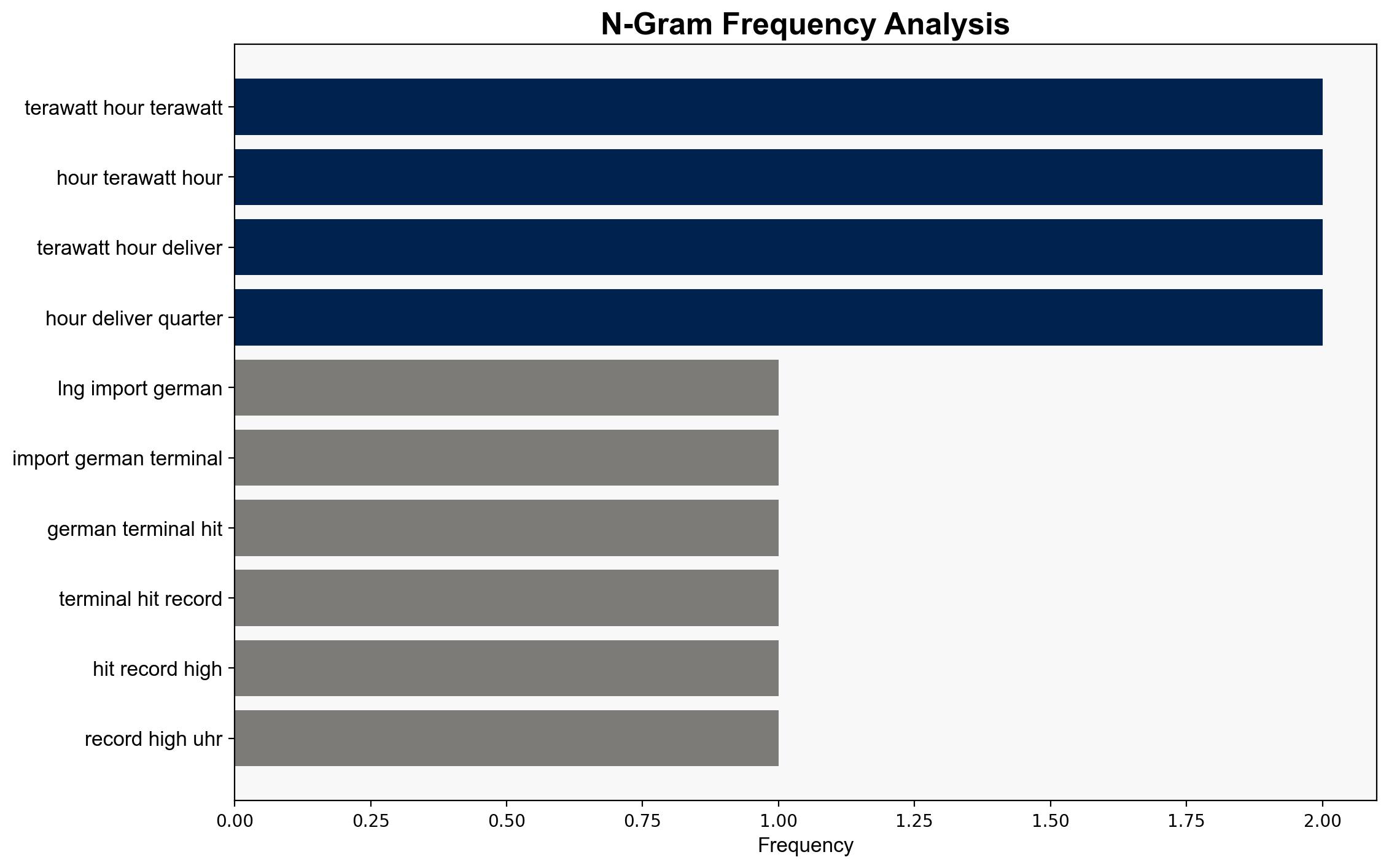LNG imports at German terminals hit record high – Dpa-international.com
Published on: 2025-10-12
Intelligence Report: LNG imports at German terminals hit record high – Dpa-international.com
1. BLUF (Bottom Line Up Front)
Germany’s LNG imports have reached unprecedented levels, reflecting a strategic shift in energy sourcing to reduce dependency on Russian gas. The most supported hypothesis is that Germany is intentionally diversifying its energy sources as a response to geopolitical tensions with Russia. Confidence level: High. Recommended action: Continue monitoring LNG import trends and infrastructure developments to assess long-term energy security and geopolitical stability.
2. Competing Hypotheses
1. **Hypothesis A**: Germany’s record LNG imports are primarily driven by a strategic policy to reduce reliance on Russian gas due to geopolitical tensions and energy security concerns.
2. **Hypothesis B**: The increase in LNG imports is a temporary response to short-term supply disruptions and will normalize as traditional gas flows resume or alternative pipeline sources are secured.
Using ACH 2.0, Hypothesis A is better supported due to the consistent policy actions taken by Germany to expand LNG infrastructure and diversify energy sources, as well as the ongoing geopolitical tensions with Russia. Hypothesis B lacks support given the strategic investments and long-term contracts being established.
3. Key Assumptions and Red Flags
– **Assumptions**: It is assumed that Germany’s policy shift is sustainable and that LNG infrastructure can meet long-term demand. It is also assumed that geopolitical tensions with Russia will persist.
– **Red Flags**: Potential over-reliance on LNG from specific regions could create new dependencies. The assumption that LNG infrastructure will not face operational challenges is untested.
– **Blind Spots**: The impact of potential technological advancements in energy storage or alternative energy sources is not considered.
4. Implications and Strategic Risks
– **Economic**: Increased LNG imports may lead to higher energy costs, impacting industrial competitiveness.
– **Geopolitical**: Reduced dependence on Russian gas could alter Germany’s diplomatic leverage and relationships within the EU.
– **Cyber**: LNG infrastructure could become a target for cyber-attacks, necessitating enhanced cybersecurity measures.
– **Psychological**: Public perception of energy security may improve, but reliance on LNG could be seen as environmentally contentious.
5. Recommendations and Outlook
- Enhance cybersecurity measures for LNG infrastructure to mitigate potential threats.
- Explore diversification of LNG suppliers to avoid new dependencies.
- Scenario-based projections:
- **Best Case**: Successful diversification leads to stable energy prices and enhanced energy security.
- **Worst Case**: Supply chain disruptions or geopolitical conflicts lead to energy shortages and economic instability.
- **Most Likely**: Gradual stabilization of energy imports with moderate price fluctuations.
6. Key Individuals and Entities
– Sebastian Gulbis, gas expert at consultancy Enervis.
– Deutsche Regas, operator of LNG terminals.
7. Thematic Tags
national security threats, energy security, geopolitical strategy, regional focus




